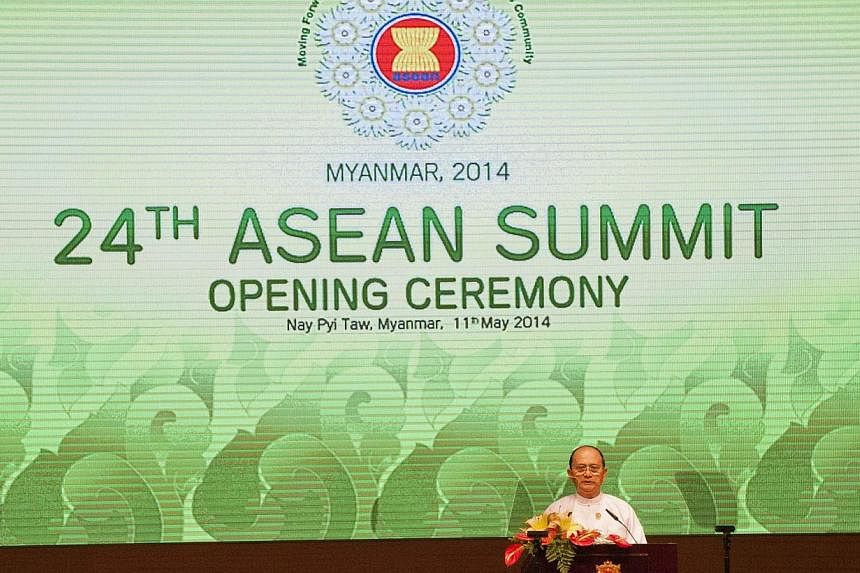MY FIRST visit to Myanmar was in 1985 - it was at a time when the country was still struggling to find its footing from years of internal strife and international disdain.
There is really no need to describe a country in this situation, where its political and economic struggles are visible in the streets and in the villages, the sad effects of poverty staring you in the face. Over the years, I had the opportunity to revisit Myanmar a few times. In my last visit a month ago, I noticed immediately a new vigour, energy and drive in Myanmar - I'd like to call it ambition.
I was in Naypyidaw with our Prime Minister for the 24th Asean leaders' meeting. Naypyidaw, which literally translates as "Royal City in the Sun" in Burmese, is Myanmar's new government centre much like Malaysia's Putrajaya. As we moved about the city, I was struck by its contemporary feel. Featuring modern and well-developed infrastructure, wide boulevards and the like, Naypyidaw exuded a quiet confidence - the kind that says it is ready for a new challenge, an "adrenaline surge". I have been informed that Naypyidaw is one of the world's top 10 fastest-growing cities!
I was particularly impressed by the newly built Mount Pleasant Hotel, which stands 1,557 feet (474.5m) above sea level, overlooking the capital.
The signal was loud and clear. "We are open to do business with the world!"
Indeed, Myanmar has shifted from its previous inward-looking practices to embrace openness and global values.
I believe the change is a result of this country's aspiration to become a bustling Asean nation and an economy capable of standing tall among its more established peers.
The Asean leaders' meeting, themed "Moving Forward in Unity to a Peaceful and Prosperous Community", was the biggest international gathering organised by the country in a few decades and can be seen as a "coming out" party for Myanmar.
They spared no efforts to boldly showcase the country's phenomenal growth as a result of political, economic and administrative reforms embarked on since 2011.
Myanmar's Gross Domestic Product (GDP) per capita has grown 11 times since it joined Asean. Asean makes up for 13 per cent of Myanmar's total exports and 20 per cent of their total imports. The previous year's Foreign Direct Investment (FDI) was US$4.1 billion (S$5.1 billion), a threefold increase from US$1.4 billion the year before.
Some milestone reforms achieved include the release of pro-democracy leader Aung San Suu Kyi from house arrest and the government's willingness to engage her, setting up of the National Human Rights Commission, the introduction of new labour laws that allow the establishment of labour unions, relaxation of press censorship and currency regulations, among others.
I inwardly contemplated on what made a regime so obsessed with control over the country's people and resources embark on such brave and risky reforms.
The answer can lie in only one thing: an irrepressible appetite for growth and development.
Malaysia - a country that is also on a growth trajectory - is witnessing a strengthening relationship with Myanmar. Bilateral trade has expanded by 36 per cent for the first three months of 2014 from US$208 million to US$283 million. And Malaysia is Myanmar's seventh-largest investor, with investments totalling US$1.65 billion as of March 2014.
I believe there are lessons that Asean can learn from Myanmar's journey, as much as Myanmar had learnt from the regional grouping.
Like it or not, Asean economies can only prosper through openness. Trade is still an important part of our economies and will remain so in the near future.
2015 is an exciting year for South-east Asia as it will see the birth of the Asean Economic Community (AEC), which will create a 600 million-strong market.
Progress towards its realisation has been encouraging. Nevertheless, there have been questions over the need for free trade.
This is understandable: No one likes more competition.
But Myanmar's example should show Asean the great good that comes from opening up.
Like the new Myanmar, Asean must be careful to avoid being trapped in a miasma of insular insecurities.
While we adhere to our core values, at the same time we must be more open, align ourselves with global trends and practices as well as adopt a progressive spirit.
What's at stake is continued growth that will move the region forward.
2015 should be a year in which Asean comes together and show the world that we mean and are open for business.
Datuk Sri Mustapa Mohamed is Malaysia's Minister for International Trade and Industry.

